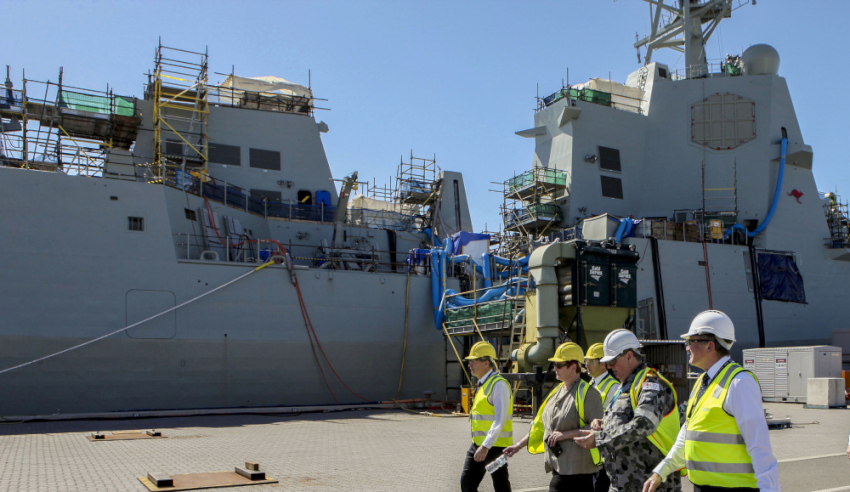Western Australia is not the only state suffering from a loss of shipbuilding work, with Victorian defence industry advocate and former federal politician Greg Combet saying Victoria has also lost out.
To continue reading the rest of this article, please log in.
Create free account to get unlimited news articles and more!
Speaking to Defence Connect, Combet said the state has been challenged by the decimation of its shipbuilding industry with the decision to have the future submarines, future frigates and offshore patrol vessels built across South Australia and WA.
"A key strategic challenge has been presented by the decision of the Turnbull government to locate the shipbuilding, as I indicated before, in South Australia and Western Australia, and I don't question that," Combet stated.
The former trade unionist said while he does not believe either state is undeserving of the work, it has presented an unclear future for the Victorian industry.
"It has meant for Williamstown Naval Dockyard, which has got a long and very proud industrial history in Melbourne, that there's no shipbuilding work. It's currently mothballed," Combet said.
"We've had to consider what the future of that would be and think differently about shipbuilding, and how the industrial capabilities and the scientific and research capabilities in Victoria might co-operate and participate in a national effort to deliver those shipbuilding programs and especially the submarines."
This week, WA Minister for Defence Issues Paul Papalia declared WA had been "dudded" after the Naval Shipbuilding Plan revealed SA, which will undertake the lion's share of the $89 billion Future Shipbuilding Program work, will need to recruit foreign and interstate workers and spend billions of tax-payer dollars on construction to develop the shipyards.
"The Prime Minister confirmed he's going to get foreign workers and desperately try and attract interstate workers to go to South Australia because they don't have the human capital to do this work," Minister Papalia said.
The Naval Shipbuilding Plan states that "the situation in Western Australia is qualitatively different [to SA]".
"While Western Australia will need additional skilled labour over time for the minor naval vessel build, there is unlikely to be a requirement for a rapid increase in employment over a short period of time," the plan said.
"Major shipbuilders in Western Australia are strongly engaged in ship sustainment (maintenance and repair), which draws on many of the same skilled trades, and they have a significant export program and multiple lines of business beyond naval shipbuilding. These factors mean they have been less effected by cyclical demand from previous government contracts and have been able to better maintain skilled workforces."
But it seems Combet and Victoria are more optimistic than their West Australian counterparts, with the defence advocate saying Victorian SMEs will still benefit from the projects, without the construction being done in Victoria.
"When a naval shipbuilding program of this scale comes along, including frigates, offshore patrol vessels and, of course, submarines, even though the shipbuilding itself, that is the large construction, putting together the modules, is to be done in Adelaide and to a much lesser degree in Western Australia, it is inevitable that many of the players and the SME community in Victoria ... and they're not so small, many of these companies ... they'll gain a lot of work," Combet said.
"It's making sure that they're able to present their wares to the primes involved in those programs and that there's knowledge from those overseas primes of the capabilities that we've got in Victoria, and that's part of my role, too."

 Login
Login







